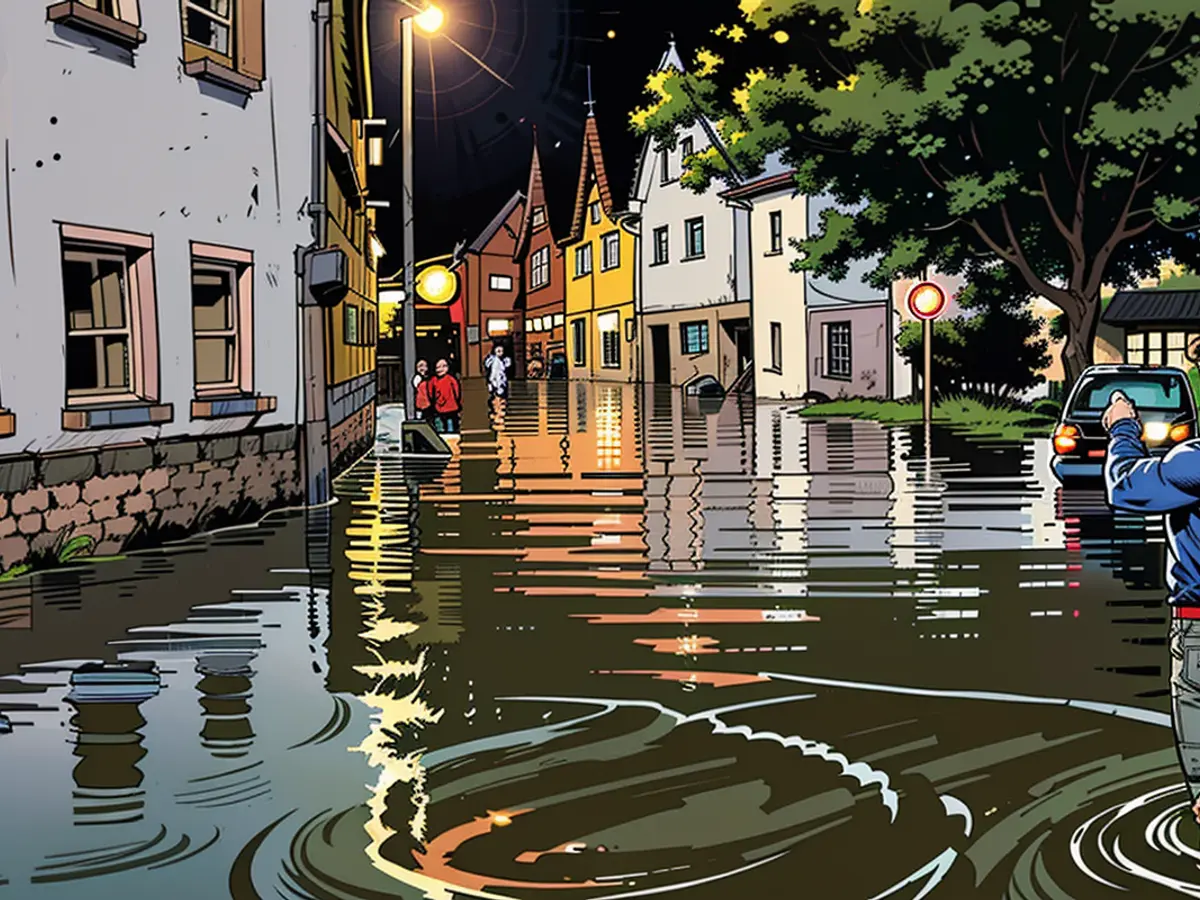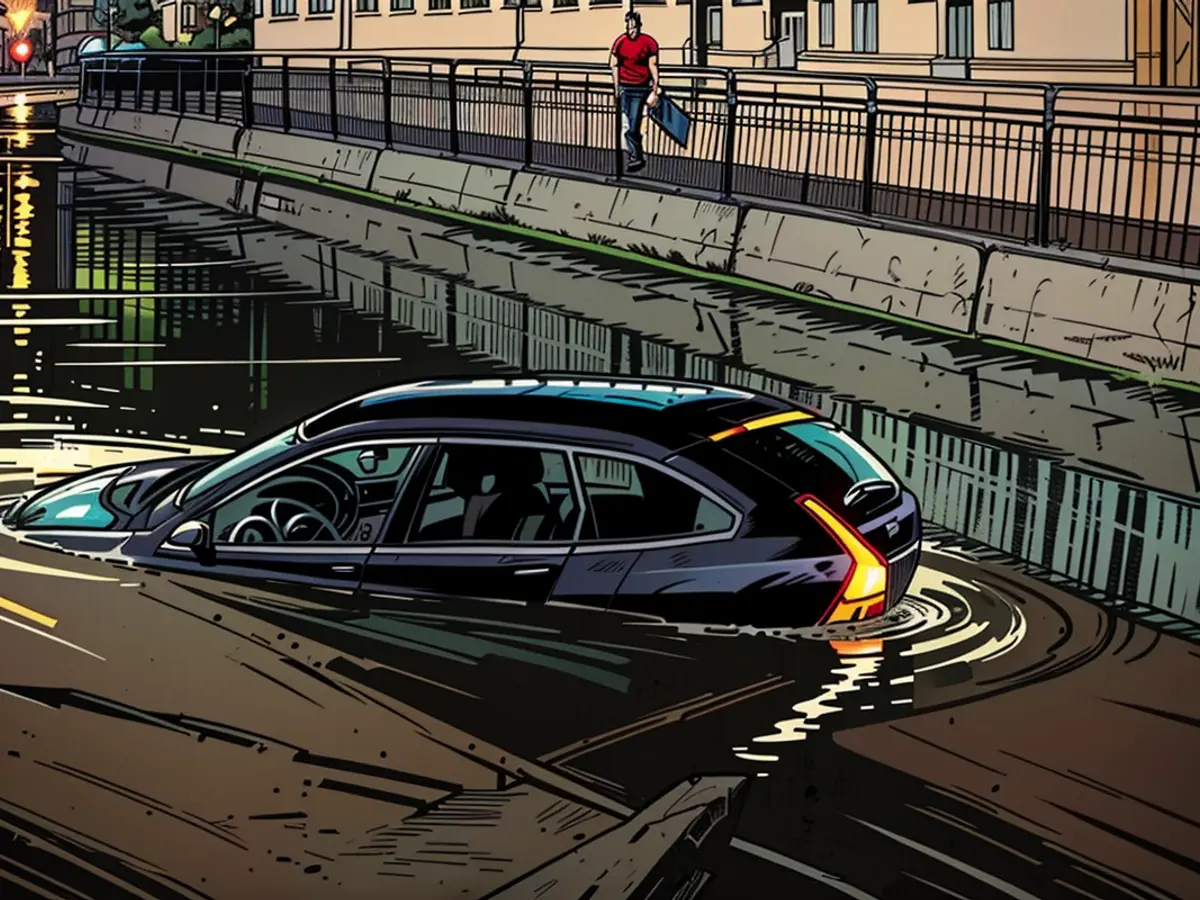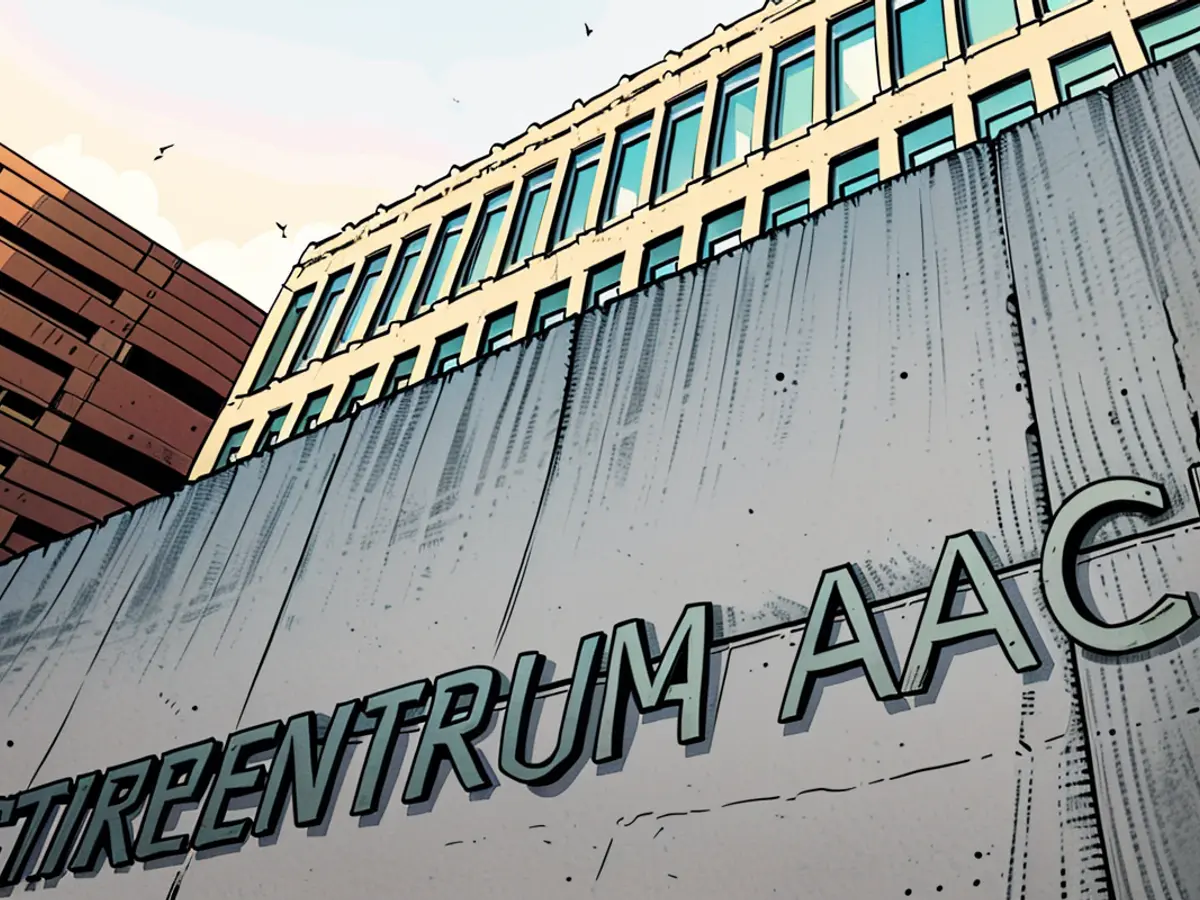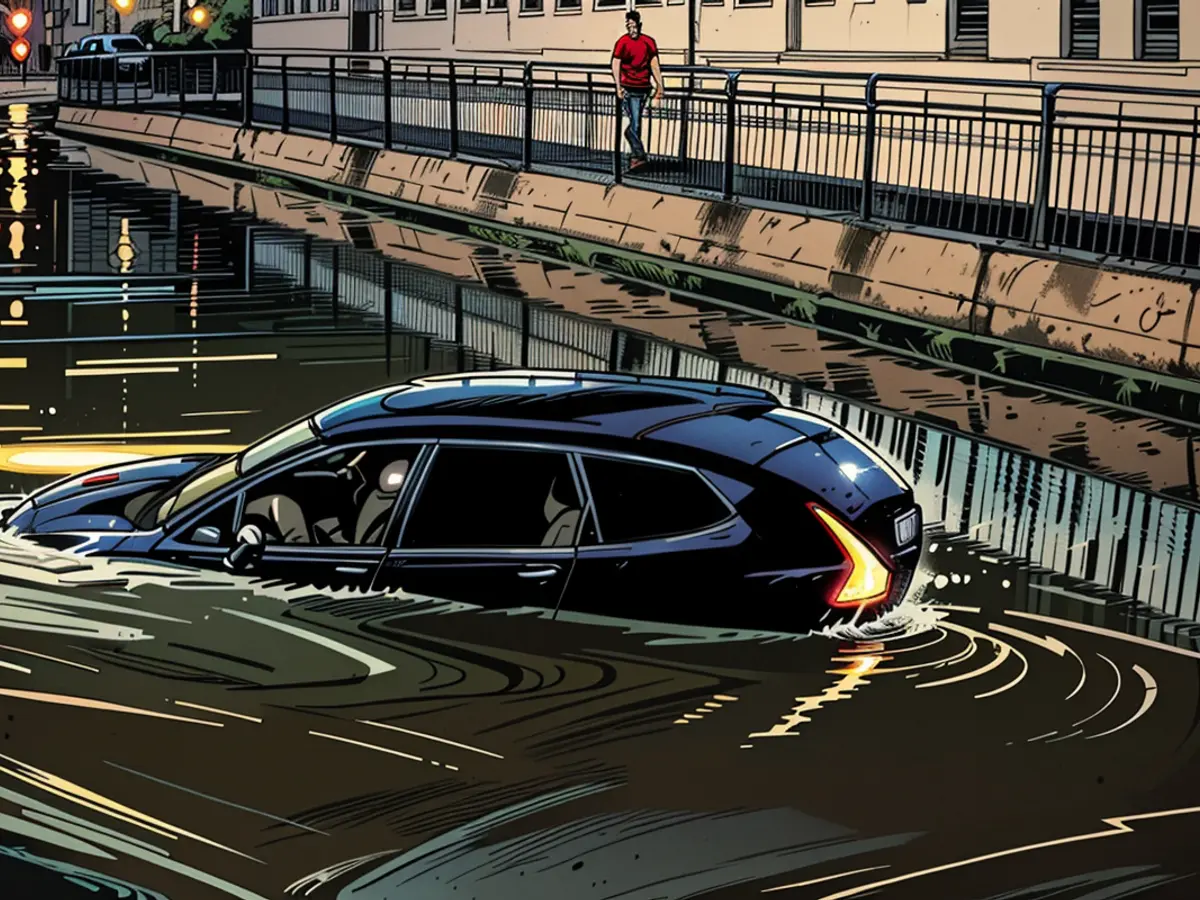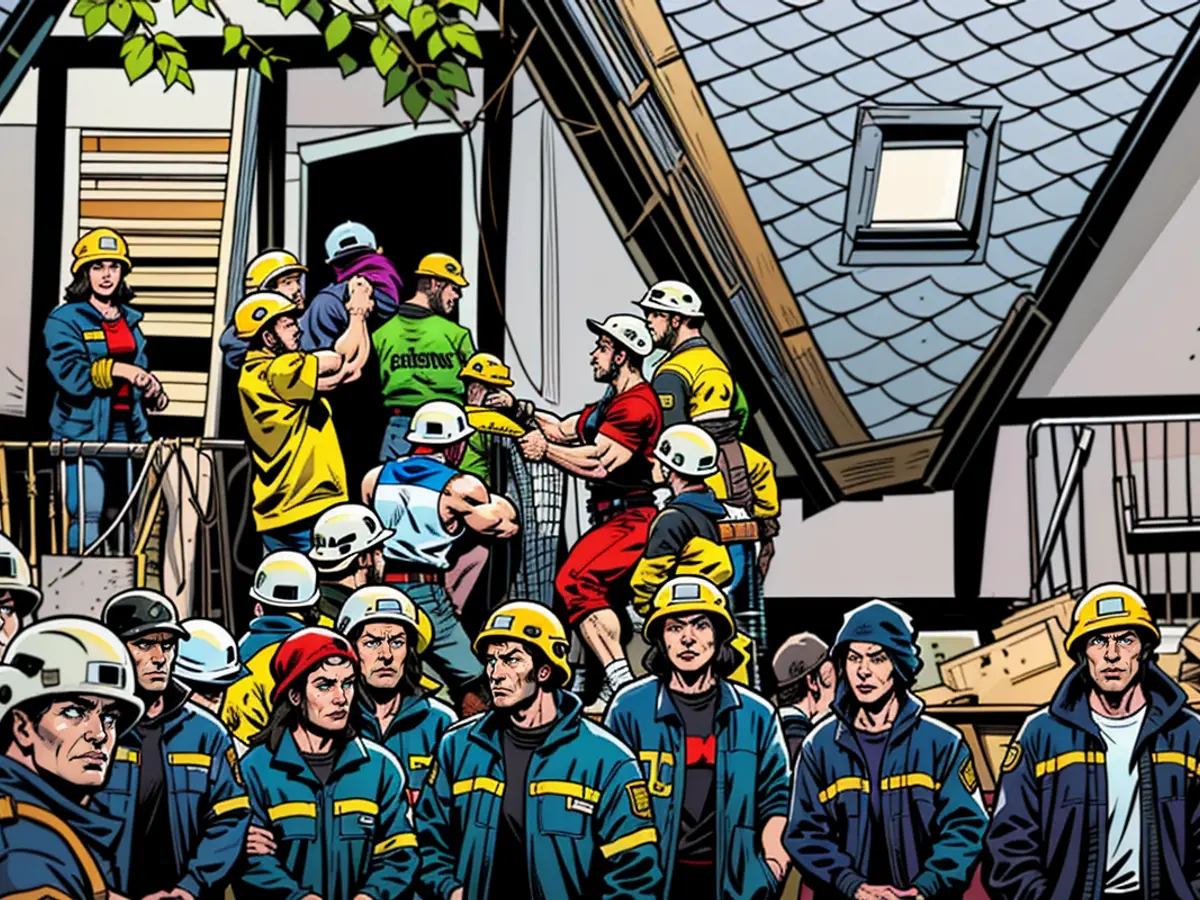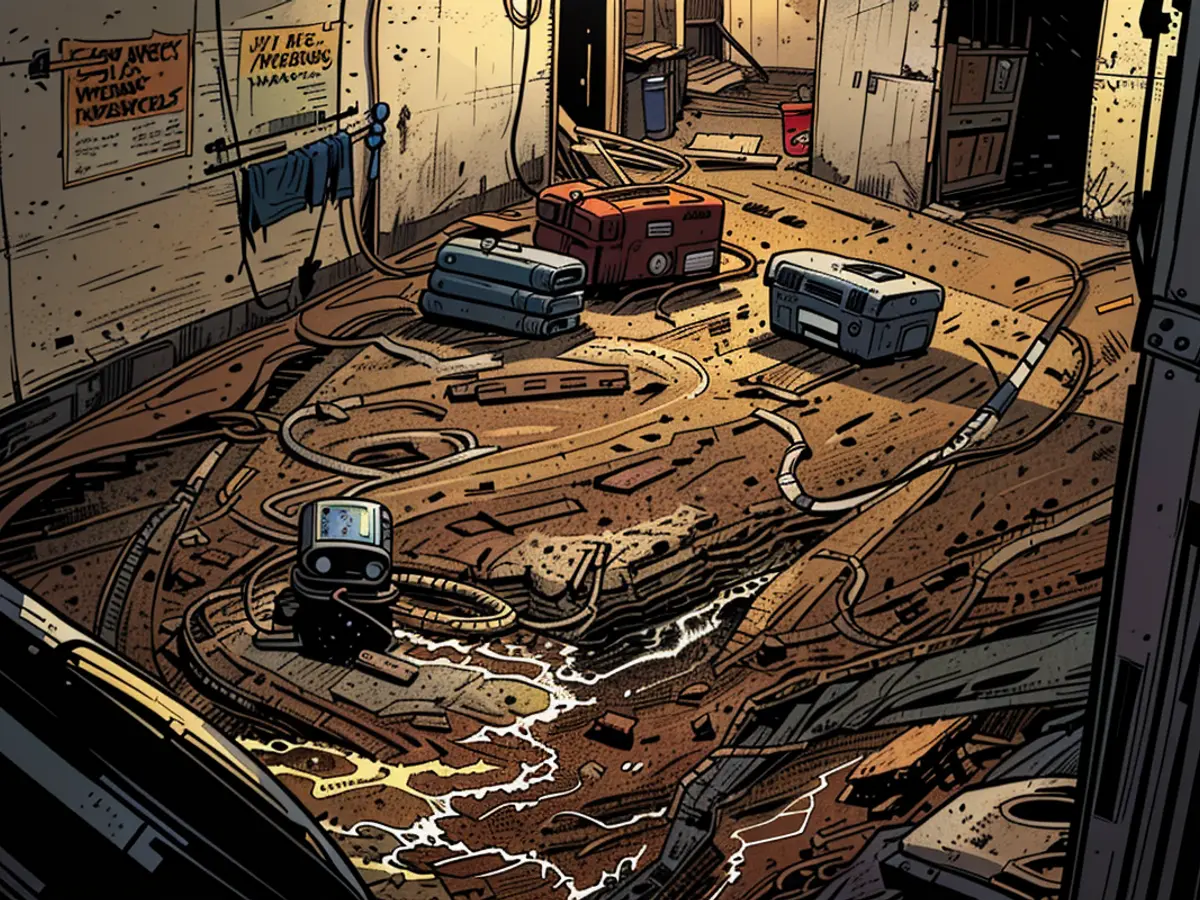Temporary storms cause "total chaos"
After the heat, severe storms sweep across parts of Germany. Initially, regions in the south and west are mainly affected, later also in the north of the country. In Bavaria, an Eurocity train becomes stranded, and a nursing home in East Frisia is evacuated. In Baden-Württemberg, an old town is flooded.
Intense storms with heavy rain and hail put emergency services in various parts of Germany to the test in the evening and night. North Rhine-Westphalia, Lower Saxony, Bavaria, and Baden-Württemberg were particularly affected, where in Bruchsal a river overflowed its banks and flooded the old town of the district of Heidelsheim. The fire department reported that the water reached up to 1.50 meters high at times. According to the flood center, the river Saalbach reached its highest level of over 2.13 meters at the Bruchsal gauge around 2:30 AM, just above the level for a 100-year flood of 2.10 meters.
Other federal states also reported flooded basements and flooded streets. The storms were preceded by a heatwave that reached its peak of up to 36.5 degrees in Bad Neuenahr-Ahrweiler, Rhineland-Palatinate, on Tuesday - the hottest day of the year so far, according to provisional data from the German Weather Service.
In Baden-Württemberg, the district of Karlsruhe was particularly affected by heavy storms. "Absolute chaos" prevailed, with cars being swept away by floodwaters, a fire department spokesman said in the evening about the situation in Gondelsheim, about 15 kilometers west of Karlsruhe. The state's flood center warned that due to locally extremely heavy rainfall, water levels on some streams and small rivers could rise significantly not only at night but also during the course of Wednesday.
In Bruchsal, residents in the district of Heidelsheim were advised via a warning app to evacuate basements and ground floors in certain areas and to seek higher floors due to the flood situation. Two helpers from the population were injured - the severity was initially unclear. There were also floods in the city center of Bruchsal, for example, in underground passages. However, the water levels have since decreased at both locations.
The Karlsruhe police asked people to avoid non-essential trips due to the storm situation. The district fire department association announced shortly before midnight that firefighters had handled over 500 deployments so far. Several hundred personnel were involved.
Uprooted trees disrupt rail traffic
In Bavaria, an Eurocity train collided with a tree that had fallen onto the tracks and became stranded. A spokesman for Deutsche Bahn reported this. Around 260 people were on board at the time of the incident near Bad Endorf in the district of Rosenheim. According to the Federal Police, there were no injuries. The section of track between Bad Endorf and Prien am Chiemsee has been impassable since around 7:00 PM. The track is expected to be cleared in the morning hours of Wednesday, according to DB. The overhead line is damaged and needs to be repaired. Passengers were taken to Prien by minibuses. Long-distance trains were diverted or ended their journeys prematurely.
In NRW, an uprooted tree also landed on the tracks in the evening, ending the journey of 80 passengers on an S-Bahn near Hennef, a spokesman for the Bahn said. The passengers were transferred to another train.
In the Lower Saxony district of Ammerland, a fallen tree damaged an overhead line, causing all train traffic at Augustfehn station in Apen to stop. A passenger train on the track was halted. Around 120 to 130 passengers were able to leave the train, the fire department reported.
Residents must leave nursing home
Heavy rain also led to hundreds of fire service deployments in East Frisia. The city of Aurich was particularly affected, a spokesperson for the control center in Wittmund said. Around 25 residents had to be taken to a sports hall from a nursing home in the evening. Plasterboards had come loose in the home. It is unclear how long the people will have to stay in the sports hall. The German Red Cross is caring for the residents. In an Auricher hospital, several fire services and the Technical Relief Agency are working to prevent an evacuation.
North Rhine-Westphalia also affected
The storms also had consequences in North Rhine-Westphalia. "All available forces are in action," a spokesperson for the Duisburg fire department said on Tuesday evening. Almost the entire city area was affected. The clear focus of the deployments were water problems - flooding in cellars and underpasses. The police also reported several flooded sections of the A59 and A42 near Duisburg and warned of aquaplaning.
In Bavaria, there was a serious accident on the A9 in the district of Eichstätt due to heavy rain. According to initial police knowledge, a driver lost control of his vehicle due to the weather and collided with another car. Both vehicles overturned. The driver of the second car suffered minor injuries, the other driver and another passenger in his car were moderately injured. The A9 was temporarily completely closed but is now passable again.
Recognizing the severe impact of the storms, the German government may consider seeking assistance from the European Union's Competition Commission, as stated in the EU treaty, where "The Commission shall be assisted by the Member States."
In an effort to mitigate the effects of the heavy storms, particularly in regions like Baden-Württemberg and North Rhine-Westphalia, where infrastructure was heavily affected, the Member States might collaborate with the European Commission's experts to devise strategies for quick recovery and future resilience measures.
